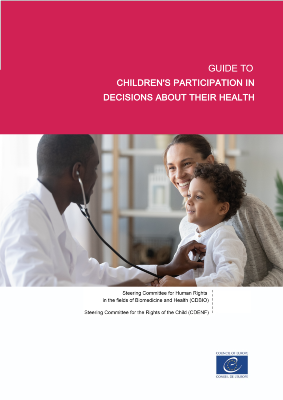Children’s participation in decisions about their health
International human rights instruments recognise that children are rights holders with evolving abilities to make decisions in all aspects of their lives, including their health.
Research provides evidence that there are multiple benefits to involving children in decisions about their health; in fact, meaningful participation of children is considered an important contributor for achieving high-quality care for children.
However, there can be uncertainty as to how to support and foster effective child participation in real-world healthcare situations that are often complex, accounting for differing legislative frameworks and for the varying role played by other actors, namely the parents and health professionals, in the decision-making process.
Children across Council of Europe Member States may currently experience different situations and may encounter varying practices as regards their participation in healthcare decisions. Child participation may be more effective in some settings, but there remains room for improvement in all countries.

The Guide provides information and advice, primarily for healthcare professionals, about how to involve children in decision-making processes regarding their health. It starts by presenting the theoretical and legal context and progresses to describe important components of the decision-making process, helping health professionals to understand their role in supporting children, families, and other professionals to enact this in practice. Key concepts of consent, assent, and ‘best interests’ are discussed, as well as common healthcare situations where participation in decision-making may sometimes be perceived as more challenging. Examples and links to good practice are provided throughout.
Available in :FRA HUN POL ESP ARM RON DEU
Soon available in Portuguese, Latvian and Lithanian

In Autumn 2024, a group of young people from different countries worked together to prepare a child-friendly summary of the Guide to children’s participation in decisions about their health. Child Rights Connect and the Council of Europe supported them in developing this booklet. It contains key principles and messages, a child-friendly glossary and a some suggestions for adults discussing this topic with children.









